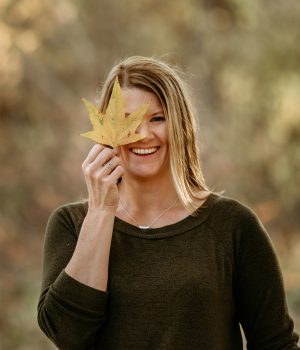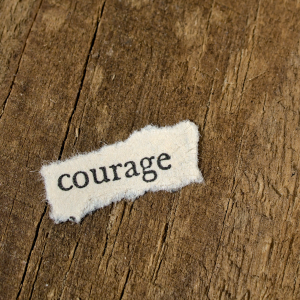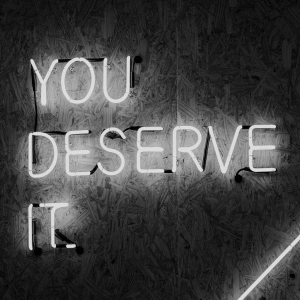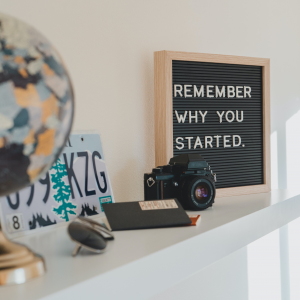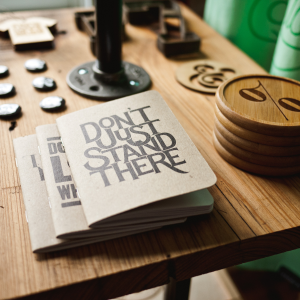Episode 86: Join me for one of my favorite episodes (and all-time MOST DOWNLOADED episode)– Lessons Learned from Pema Chödrön. Pema is a Buddhist nun and one of my favorite authors. Her work has been instrumental in helping me rebuild my life after my divorce.
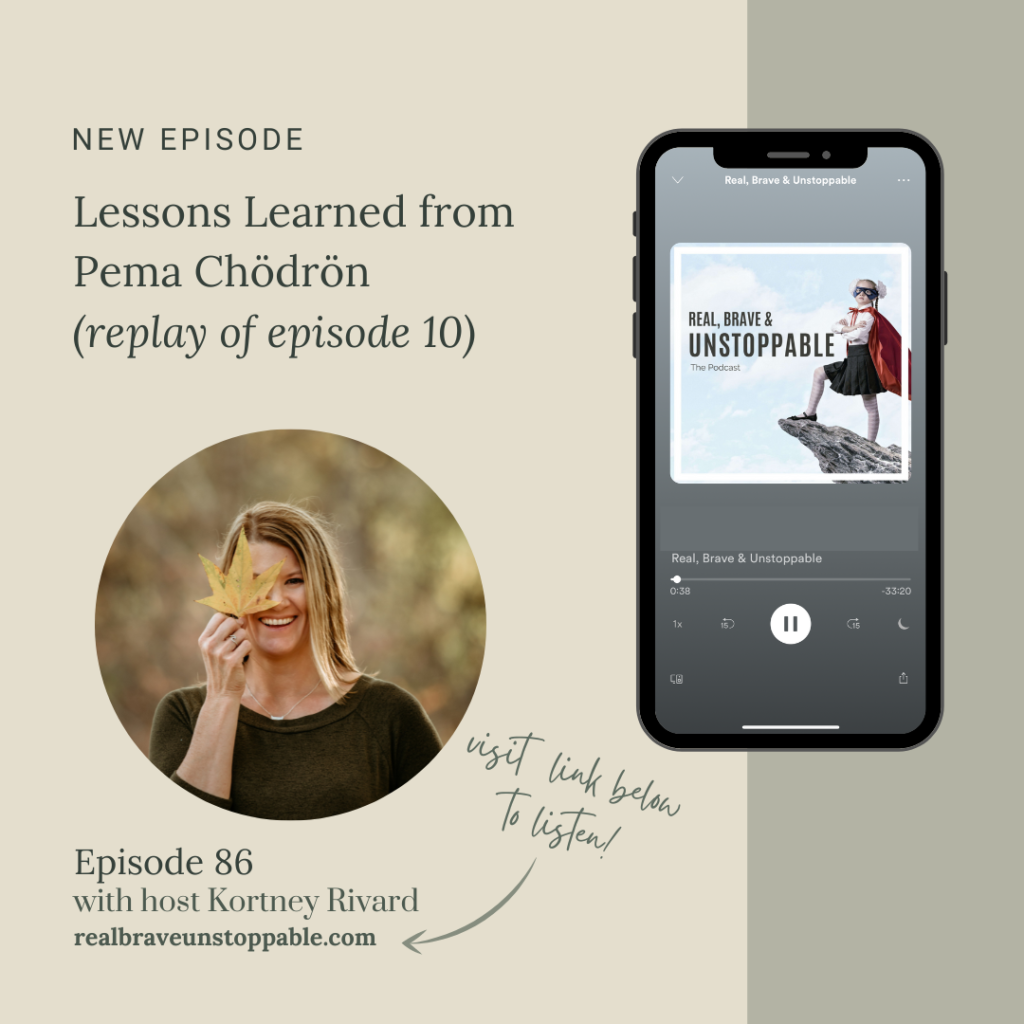



Prefer to read an article? Visit Kortneyrivard.com/blog
Show Notes:
Episode #10: Lessons Learned from Pema Chödrön contains some valuable nuggets of wisdom! Pema is a Buddhist nun and author whose work was instrumental in teaching me that I was creating my own suffering by attaching to all the things that I thought I “should” have or the way I “should” be.
Her teachings also taught me how to surrender to and accept what IS. This has been the single most important thing I’ve learned since my life “blew up” nearly 8 years ago.
Lately, I’m finding myself having a harder time with that and I’ve been revisiting some of the resources that helped me learn this very important skill. I’ve felt the pull to go back and revisit some of her writing and remembered this episode. I thought it would be good to re-share it with you too.
Have a listen to “Lessons Learned from Pema Chödrön” – whether it’s your first time listening or it’s time for a re-listen, it’s totally worth your time!
Listen to the full episode to get all the details!
Resources
Some of my favorite books by Pema:
- When Things Fall Apart
- The Places That Scare You
- Welcoming the Unwelcome
- Comfortable with Uncertainty
- Start Where You Are
Feeling stuck? Don’t know where to start?

Create an unstoppable life. Schedule a call at www.kortneyrivard.com/lets-talk
Visit https://kortneyrivard.com/lovelife to download a free guide on how to create a life you love!
Support the show (https://www.buymeacoffee.com/kortneyrivard)
You May Also Like:
- Episode 82: How to Cope with Loneliness
- Episode 78: How to Bounce Back from a Breakup (or other life upset)
- The Real, Brave, & Unstoppable full episode catalog
Transcript:
Episode 10 – Wisdom from Pema Chodron
[00:00:00]
Hey everybody, it’s Kortney here. What’s up this week? Episode number 10 is what’s up! That’s amazing – I can’t believe that I have been doing podcasts for 10 weeks. I really appreciate you guys hanging out with me and I really appreciate this small, but mighty community of listeners so much. So thank you for listening!
And I would love it if you would share this with your friends, acquaintances, social media, anyone that you think might benefit from what I have to say. I have a lot of cool stuff coming up in the next couple of months, including in August, I’m going to start having guests on the show. So that’s pretty exciting.
I’m just sitting here in my office, recording this podcast. And I just plugged in my new essential oil diffuser that I got from Young Living. And I have this amazing oil in it called Envision that is just like, it smells so amazing. So it’s really setting that tone nicely for me to talk about one of my favorite authors today.
Her name is Pema Chodron, and she is a Buddhist nun and the author of a ton of amazing books, including one of my favorites – The Places That Scare You. there’s also Living With Uncertainty. She has a relatively newer book called Welcoming the Unwelcome. And I’ll list these in the show notes cause they’re really great. But I first learned of Pema when I was going through my divorce. Her writing has had a huge impact on my journey and the mindset that I live with today [00:02:00] post-trauma, post-traumatic event. She teaches and writes on the lessons of Buddhism, but the way she approaches it is really amazing because she puts it in this really down to earth style and shares her teachings on Buddhism and meditation in a way that, shows how they apply to like an average human life, like you and me, our everyday lives.
And like I said to her, her writing has had a huge influence over my life. And so today I just want to talk to you a little bit about some of her concepts and I’m gonna share some quotes that have helped me a lot.
One of Pema’s overall messages is that difficult times are not something to try and escape. They’re actually an opportunity for us to open ourselves to growth and change. She teaches a lot about attachment, like to things, emotions, thoughts, and circumstances, and about how a lot of the reason for. Like suffering, pain, and suffering, is our [00:03:00] attachment to comfort or things being the way we want them to be or the way that we think they should be. And her work is really all about embracing that discomfort, leaning into it, really understanding it, and being compassionate to yourself. And if you’re willing to lean in and understand that pain and move toward it that’s really the key to being able to just let it go.
So I’m going to go through some quotes from her writing on this episode. I wish I could share everything cause she has so much good stuff. Like when I read a book, I’m just like, underline, underline, underline. but these are some of my favorite excerpts. And like I said, her books are so good. You should definitely check them out. My favorite one is When Things Fall Apart and this was like my bible when I was going through the split with my ex-husband. Okay, so here we go.
So one of the things she talks about in her, well, a lot of her books, but her latest, one Welcoming the Unwelcome, which I [00:04:00] really love is basic goodness or the concept of basic goodness. We all have this basic goodness inherent to ourselves. And it’s based on what the Buddha taught. I am not Buddhist, but I’m just paraphrasing what comes out of her book.
But, what the Buddha taught was that all of us at our essence are good. And so, you’re complete just as you are. There’s nothing wrong with you. Our fundamental state is good and open and fresh. I have faults and we have flaws, but these are temporary. And they’re removable, but these temporary obstacles, as she talks about them as like clouds, they pass.
So we can work with the flaws and the faults and shortcomings, not by removing them, but by getting to know them really well. So here’s a quote related to this concept of wanting to get rid of your flaws.
The problem is that the desire to change is [00:05:00] fundamentally a form of aggression towards yourself. The other problem is that our hangups, unfortunately, or fortunately contain our wealth, our neuroses, and our wisdom are made out of the same material. If you throw out your neurosis, you also throw out your wisdom. Someone who is very angry also has a lot of energy. That energy is what’s so juicy about him or her. That’s the reason people love that person. The idea isn’t to try to get rid of your anger but to make friends with it, to see it clearly with precision and honesty, and also to see it with gentleness. That means not judging yourself as a bad person, but also not bolstering yourself up by saying, it’s good that I’m this way. It’s right. That I am this way. Other people are terrible and I’m right to be so angry at them all the time. The gentleness involves not repressing the anger, but also not acting it out. It is something much softer and more open-hearted than any of that. It [00:06:00] involves learning how once you’ve fully acknowledged the feeling of anger and the, and the knowledge of who you are and what you do to let it go. You can let go of the usual pitiful little storyline that accompanies anger and begin to see clearly how you keep the whole thing going. So whether it’s anger or craving or jealousy or fear or depression, whatever it might be, the notion is not to try to get rid of it, but to make friends with it. That means getting to know it completely with some kind of softness and learning how, once you experienced it, fully to let it go.
I love that concept of just not getting attached to anything about yourself that, you know, you just are. There’s another quote that I really love.
The happiness we seek is already here and it will be found through letting go rather than through struggle.
And this one’s also really good:
Rather than going after [00:07:00] these walls and barriers with a sledgehammer, we pay attention to them with gentleness and honesty. We move closer to those walls. We touch them and smell them and get to know them. Well, yeah. We become familiar with the strategies and beliefs we use to build these walls. What are the stories that we tell ourselves repels me and what attracts me without calling what we see right or wrong. Simply look as objectively as we can. We observe ourselves with humor, not getting overly serious moralistic or uptight about the investigation. Year after year, we train in remaining open and recessive to whatever arises.
I love this concept of actually just kind of bumping up against these kind of walls of armor or these, these flaws or failures that we have, and just kind of, you know, getting curious about them and, you know, seeing what’s there and not judging it. I think that’s really important too, but I love that concept.
Here’s a [00:08:00] quote about just obstacles that come up, which you can also kind of think about your flaws, your failures, shortcomings as kind of an obstacle for certain things too. But here’s the quote:
What we habitually regard as obstacles are not really our enemies, but rather our friends. What we call obstacles are really the way the world and our entire experience teach us where we’re stuck, what may appear to be an arrow or a sword. We can actually experience as a flower. Whether we experienced what happens to us as an obstacle, an enemy, or as a teacher and friend depends entirely on our perception of reality. It depends on our relationship with ourselves.
Oh, that’s so good. That is so good. Just about thinking about those tough times in your life or the things that you don’t like about yourself, about just thinking about them as a teacher.
Okay, so here’s another one.
But as we let go of our repetitive stories and fixed ideas about ourselves, particularly deep [00:09:00] seated feelings of I’m not okay, the armor starts to fall apart and we open into the spaciousness of our true nature and to who we really are. Beyond the transitory thoughts and emotions we see that our armor is made up of nothing more than habits fears. And we begin to feel that we can let those go.
This is really the work. When I work with my clients, we address that everyone has stories that they tell themselves – the storyline that runs in their head. And basically that storyline is made up of how you feel about something, you know, your opinion of a situation, a thing, whether it’s about an outside thing or yourself, or, you know, we all have these and a lot of the work is tearing down those stories. So you can just sort of let that go and just be with yourself.
So much of Pema’s teachings have to do with that. Not attaching to [00:10:00] things, emotions, circumstances, or the way that we want things to be. So she has had a really big influence on my life and how I am approach pain and uncertainty. In her book, Welcoming the Unwelcome, she talks about starting with a broken heart, which is kind of, like ouch, but it’s really the idea of connecting to your vulnerability, or the pain and sadness that you carry and really turning into it, leaning into it instead of resisting it.
And she says that we can do this in a couple of ways. And I so wholeheartedly agree with this approach, but the first thing is to really acknowledge what you’re feeling and honor those feelings. Sit with them, accept them, recognize, embrace them, like really turn towards them. That’s really important. So often we tend to label these feelings and just label them as bad.
When we [00:11:00] have these negative feelings, we tend to get tight – contracted. And so the second thing that she says we can do is to go to your body, which I also love, like locate those feelings where they are in your body and find those contracted tight sensations and just let them open up. Breathe into them, let them open up and expand. Just make friends with and be with that tightness. We suffer when we resist those feelings, they’re okay to have, they’ll go away. They’re like waves. You know, you feel icky but you’re not going to feel icky forever. I promise you.
But when you start to wish you’re not in the predicament you’re in, you start to experience that stress and anxiety, maybe even hopelessness. The vulnerability, that’s at the core of your heart, our hearts, that’s our link to humanity. That’s what connects us. And we’re all interconnected. And this is where the real work is – when we’re able to feel seen and heard, [00:12:00] and then we can embrace our humanness and our authenticity. And this, guys, is where we really start to live amazing lives.
So about uncertainty and difficulty, here, I’m going to give you some quotes that I love.
When life becomes difficult or painful, we feel that something has gone wrong. According to Buddhist teachings, difficulty is inevitable in human life. For one thing, we cannot escape the reality of death, but there are also the realities of aging or illness yeah. Of not getting what we want and of getting what we don’t want. These kinds of difficulties are facts of life. The Buddhist teachings also say that this is not really what causes us misery in our lives. What causes misery is always trying to get away from the facts of life always trying to avoid pain and seek happiness. This sense of ours, that there could be lasting security and happiness available to us – if we could only do the right thing.
So good. In other words, it, [00:13:00] isn’t the things that happen to us in our lives that bring us pain and suffering. It’s the way that we view them, that we relate to them. And we’ve labeled them as bad and resist the feelings that come along with them. That’s what causes us that pain.
Here’s another one. We think that the point is to pass the test or overcome the problem. But the truth is that things don’t really get solved. They come together and they fall apart. Then they come together and fall apart again, it’s just like that. The healing comes from letting there be room for all of this to happen. Room for grief, for relief, for misery, for joy.
See, I’m telling you, you have got to read her books. Everything is so good. I think that one of the things I’ve learned in my struggles is just the concept of the neutrality of something. Nothing in life really has any, is new, it’s neutral until we assign it a meaning. And that’s the same with [00:14:00] situations and circumstances, you know, why do they have to be bad?
They could be good too. And I am like living proof of that. I’ve been able to look at the good and my struggles and see that. But it’s the cycle of life that, you know, we think that we need to overcome the struggle and then we’ll be fine, but your life is always going to be, things are fine. They’re great. They’re great. And then something will happen where you won’t feel great. And then it just kind of the cycle repeats. What I was getting at with that neutrality piece of things is that you can’t know joy without feeling pain. You wouldn’t know what it was because you wouldn’t have that comparison when something is inherently neutral. It’s neutral. We don’t know. It’s like if you have three boxes. You have a tiny box, a medium box, and a big box. You don’t know – if you take the tiny and the big box away, or you never show [00:15:00] someone that they have a box, they don’t know if it’s big or small, it’s just a box. And they don’t know that it’s big or small or medium until you put the other ones there to compare it to.
So think about that.
All right. Letting there be room for not knowing is the most important thing of all. When there’s a big disappointment, we don’t know if that’s the end of the story. It may just be the beginning of a great adventure. Life is like that. We don’t know anything. We call something bad, we call it good. But really we just don’t know.
That’s totally along the lines of what I just talked about the box, like, you know, We don’t know that a tough experience that we’re going through is not something that’s good. It might be the beginning of something. Amazing.
The root of suffering is resisting the certainty that no matter what the circumstances, uncertainty is all we truly have.
When we think that something is going to bring us pleasure, we don’t know what’s really going to happen. When we think something is going to give [00:16:00] us misery, we don’t know, letting there be room for not knowing as the most important thing of all. The next time you lose heart and you can’t bear to experience what you’re feeling, you might recall this instruction: change the way you see it and lean in. Instead of blaming our discomfort on outer circumstances or on our own weakness, we can choose to stay present and awake to our experience. Not rejecting it, not grasping it, not buying the stories that we relentlessly tell ourselves. This is priceless advice that addresses the true cause of suffering yours, mine, and that of all living beings.
Sometimes when things fall apart, that’s the big opportunity to change.
I love that one. If we can stay with that experience and remember that this moment is our perfect teacher, we can ask ourselves, what can I learn from this? In one of Oprah Winfrey’s [00:17:00] interviews with Pema. Pema said that if you look at the person who’s caused you the most humiliation, the most pain or suffering, this person’s also your greatest teacher.
When I got divorced, I went through a really, really tough time. And I’ve talked about it a lot on the show, I’ve wrote about it a lot on my blog, but I was so attached to the way that my life had been, even though maybe, you know, it wasn’t maybe exactly how I would have loved it to be, I was happy enough, but it wasn’t like, you know, feeling a lot of joy in my life.
I actually felt a lot like the clients that I help feel. I felt like I was kind of, you know, I felt guilty for wanting more. I felt guilty that I wasn’t feeling this joy in my life. I had a beautiful house. I had two beautiful children. I mean, I still have two beautiful children, but, I felt guilty for wanting more.
So I kind of just sat in this place of fineness.
So I just, you know, I couldn’t see any way forward when [00:18:00] my ex and I split up. He hurt me so bad and he wasn’t the kindest to me during the process and shortly after we split, I also, I had this relationship with a guy that was really bad for me and caused me a ton of pain. But these things were so good because as she says if we learn to open our hearts, anyone, including the people who drive us crazy can be our teacher.
And I would say in my life, these two particular individuals, my ex-husband, and this man that I dated for a while are two of my greatest teachers.
Let the hard things in life break, you let them affect you. Let them change. You let these hard moments inform you, let this pain be your teacher. The experiences of your life are trying to tell you something about yourself. Don’t cop out on that. Don’t run away and hide under your covers. Lean into it.
Here are a couple of quotes related to impermanence, [00:19:00] which is just saying, I mean, obviously nothing’s permanent. The bad is not permanent. The good is not permanent. Nothing is. So, you know, the bad times are going to go away. You can have hope for the good times, but the good times are also going to go away.
So you just kind of have to learn to be in that moment.
So here we go,
That nothing is static or fixed that all is fleeting and impermanent is the first mark of existence. It is the ordinary state of affairs. Everything is in process, everything, every tree, every blade of grass, all the animals, insects, human beings, buildings, the animate and inanimate is always changing. Moment to moment. We do not have to be a mystics or physicist to know this yet at the level of personal experience, we resist this basic fact that life isn’t always going to go our way. It means there’s loss as well as gain.
I really love this one about emotions. An emotion, like anger, that’s an automatic [00:20:00] response, lasts just 90 seconds from the moment it’s triggered until it runs its course. One and a half minutes. That’s all. When it lasts any longer, which it usually does. It’s because we’ve chosen to rekindle it.
That is an eye-opener.
So next time you get upset. Think about that. If you’re hanging on to it, you’re hanging on to it because you’re making it mean something or you have a story in your head or something like that. So maybe see it next time I’m going to practice this next time. I feel angry or I feel an emotion like that. I’m gonna set a timer.
I’m gonna set a timer for a minute and a half, and I’m going to just sit with it. I’m going to feel it. I’m going to locate it in my body and then I’m going to let go. But I’m going to try that. I challenge you to do the same.
Okay. The way to dissolve our resistance to life is to meet it face to face. Cutting our expectations for a cure is a gift we can give ourselves. There’s no cure for hot and cold. They [00:21:00] will go on forever. After we’ve died, the ebb and flow will still continue like the ties of the sea, like day and night. This is the nature of things. Being able to appreciate being able to look closely, being able to open our minds. This is the core of Maitri. (which is loving-kindness, if you read Pema’s writings)
We think that by protecting ourselves from suffering, we are being kind to ourselves. The truth is we only become more fearful, more hardened, and more alienated. We experience ourselves as being separate from the whole. The separateness becomes like a prison for us, a prison that restricts us to our personal hopes and fears and to caring only for the people nearest to us. Curiously enough, if we primarily try to shield ourselves from discomfort, we suffer yet when we don’t close off and we let our hearts break, we discover our kinship with all beings.
It’s an interesting way to think of suffering. [00:22:00]
The question is, are you going to grow or are you going to just stay as you are out of fear and waste your precious human life by status quo-ing instead of being willing to break the sound barrier, break the glass ceiling, or whatever it is in your own life? Are you willing to go forward? I suggest finding the willingness to go forward instead of staying still, which is essentially going backward, particularly when you have a calling in some direction that calling needs to be answered, and it’s not necessarily going to work out the way you want it to work out, but it is taking you forward and you are leaving the nest and it can never be a mistake to fly instead of staying in the nest with all the poop and everything that’s in there.
I love that one. And that one is like so much of the work I do with my clients. I keep saying that, but this one is really, you know, I help my clients get from a place where they feel kind of like they’re stuck in the nest and they are afraid to break out of that. [00:23:00] You know, their status quo-ing it right now.
They’re going through the motions, but they want to break through the sound barrier. They want to fly. They want to jump out of the nest. And that’s, that’s really like such a beautiful thing to be able to go in your life. To just keep moving forward.
Each moment is just what it is. It might be the only moment of our life. It might be the only strawberry we’ll ever eat. We could get depressed about it, or we could finally appreciate it and delight in the preciousness of every single moment of our life.
As long as our orientation is toward perfection or success, we will never learn about unconditional friendship with ourselves, nor will we find compassion.
That one is so good. I talk a lot about perfectionism or getting away from that, moving towards a place of authenticity, dropping your armor.
I talk a lot about that stuff, but, this, this one is a really amazing way to think of it as you’re, you’re ripping yourself off or, you [00:24:00] know, you’re not allowing yourself to have this unconditional love for yourself or a friendship. You’re not really allowing yourself to really get to know no yourself, which is your robbing yourself of that.
And by not giving yourself that you’re not also giving yourself compassion and by not giving yourself compassion, it’s very difficult to be able to have compassion for other people too. We’re also interconnected and it really starts with that relationship with yourself.
This one is kind of karma related.
Nothing ever goes away until it’s taught us what we need to know.
I feel like this is so true, at least in my life. And I see it a lot in other people’s lives too. Like we keep getting these same lessons over and over until we figure it out.
Okay. Whether we’re seeking inner peace or global peace or a combination of the two, the way to experience it is to build on the foundation of unconditional openness, to all that arises. Peace isn’t an experience free of challenges, free of rough and smooth as [00:25:00] an experience that’s expansive enough to include all that arises without feeling threatened.
I forget the name of the company, but there’s a company that makes like square cards and they have like quotes on the front and now they’re even making like mugs and all kinds of other stuff, but they have all kinds of quotes like that. These sorts of quotes, not Pema Chodron necessarily, but very inspirational quotes. And one of them is about this concept and I love it because it just, you know, we tend to think of it about peace as everything going our way, but really peace is being able to sit in that and let it all happen around you.
Each moment is an opportunity to make a fresh start.
Live your life as an experiment.
Love this one. This is great. To approach your life as you know what, yeah, I’ll try that. It doesn’t matter if I fail. Let’s see how this works out. That’s like such a great way to live life. And personally, my grandpa, my Grandpa Swenson, I talk about [00:26:00] him sometimes, he passed away in December and he’s was the most amazing person on the planet, but he definitely embodied that. He was always just, well, let’s see how it goes. I love that attitude.
You are the sky. Everything else is just the weather.
I love that you guys, that’s just, you know, everything moves around you. You are you’re the sun, everything else is the planets. Everything moves around you. And I’m not saying that in that you’re, you’re. You know, you should be egocentric or, you know, only think of yourself.
It just means that everything is moving and everything is changing. So that weather comes and goes. So if you can just sit with it, it’s gonna change and it’s gonna, you know, you’re going to have the tough times you’re going to have the good times. They just kinda of roll through.
One of the happiest moments ever is when you find the courage to let go of [00:27:00] what you can’t change.
Oh, so good.
Trying to change ourselves doesn’t work in the long run because we’re resisting our own energy. Self-improvement can have temporary results, but lasting transformation occurs only when we honor ourselves as the source of wisdom and compassion.
So good. You already have everything you need inside of you, everything. And when you turn to that wisdom inside of you, instead of trying to be someone you’re not, that’s when you really experience transformation, you know, it’s about knowing that you have that wisdom and compassion for yourself and for others.
And that’s where, when I talk about authenticity in my work, that’s where it stems from is understanding that fundamentally you are the source of what you need. And so everything else flows from that, you can show up as the person that you truly are in life. You can then have compassion [00:28:00] for yourself and for other people. That’s the basis of that shift.
So finally, I want to leave you with one last quote from Welcoming the Unwelcome.
The wonderful irony about the spiritual journey is that we find it only leads us to become just as we are. The exalted state of enlightenment is nothing more than fully knowing ourselves and our world just as we are. In other words, the ultimate fruition of this path is simply to be fully human. And the ultimate benefit we can bring to others is to help them also realize their full humanity just as they are.
So good.
Well, I’ve had a great time preparing this podcast and, really, reminiscing, so to speak, over some of my favorite writings of Pema Chodron, and I’m so thrilled to be able to share some of these quotes and concepts with you. I really [00:29:00] encourage you to check out her work. She’s truly amazing. And a complete badass with so much to share to help all of us.
I’ll put some names of some of the books that I enjoy in the show notes. And if you go on YouTube, you can also find a lot of interviews with her. She has a lot of meditations you can find, and stuff like that, but she’s really an amazing writer. And like I said, a few times in this episode, she has really influenced how I navigate difficult times.
And if you want to learn a little bit more about how these principles can apply to your life, and how I can help you as a coach to implement them in your life so you can experience more happiness and more joy. Feel a little more grounded. Be able to roll with the punches as things come to in your life.
I would love to have a chat with you. So please check out the [00:30:00] link in the show notes to schedule a time to chat with me. There’s never any obligation to like sign up for coaching, but it is really a great way to just, you know, learn a little bit more. And I, you know, cause I promise you that this kind of work is so helpful and it will really transform your life.
So anyway, check out Pema’s work, and thank you so much for tuning in today you guys. I appreciate you so much! Have a great day and I will see you next time!
